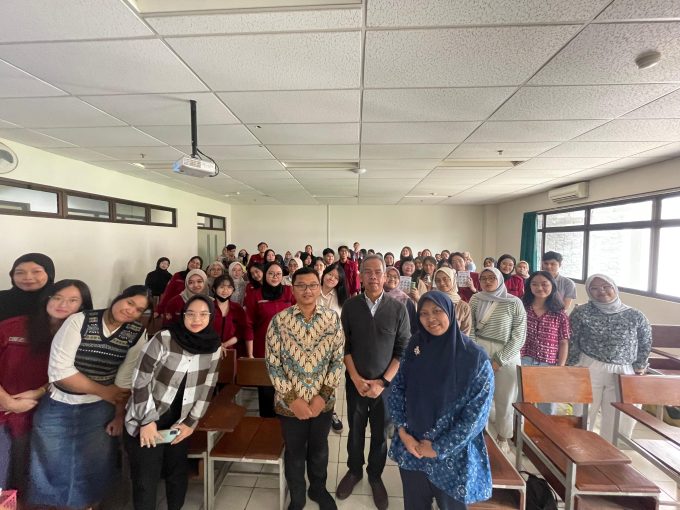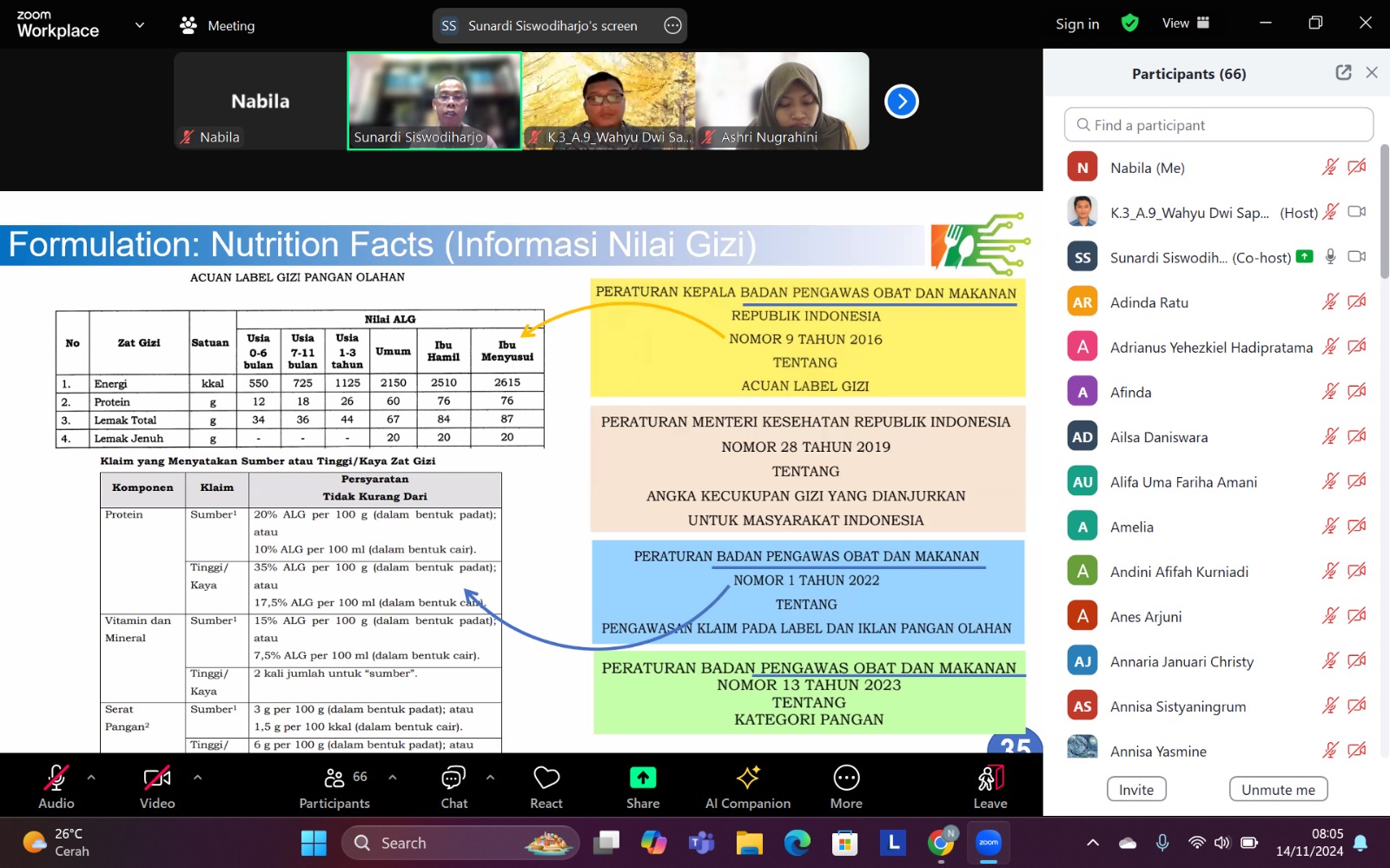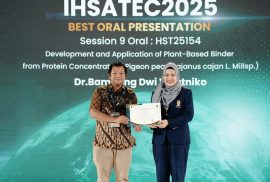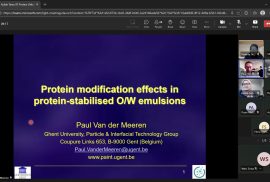
The Department of Food and Agricultural Product Technology (TPHP) at Universitas Gadjah Mada hosted a two-session guest lecture on November 7 and 14, 2024, featuring Dr. Sunardi Siswodiharjo, a research and development consultant at PT Hatifood. The event was held as part of the Merdeka Learning Campus Competition Program (Program Kompetisi Kampus Merdeka/PKKM). It was attended by undergraduate students enrolled in the course Nutritional Formulation and Fortification.
Dr. Sunardi opened the lecture series with a session titled “Nutritional Formulation: A Food Industry Landscape.” He began by offering insights into the career opportunities available to food technology graduates, particularly in industrial settings, drawing on his extensive professional background, which includes guest lecturing at numerous universities, authoring books, and publishing scientific articles. Sunardi emphasized the central role of formulation in the development of food products.
He explained that food formulation serves several key purposes: ensuring regulatory compliance, meeting consumer demands for healthier lifestyles, and enhancing product quality and innovation. Through effective formulation, food products can be designed to deliver improved nutritional profiles and superior taste, making them both functional and appealing.
 In the second session, Dr. Sunardi presented a lecture titled “Enhancing Nutrition: Insight into Food Fortification in the Industry.” He introduced the concept of fortification—adding essential nutrients to foods—as a public health strategy to address and prevent nutritional deficiencies. He offered examples of fortified products from both global and local markets. Internationally, these include milk enriched with vitamin D, flour fortified with folic acid, and sugar enhanced with vitamin A. In Indonesia, everyday fortified products include iodized salt, iron-enriched wheat flour, and palm cooking oil fortified with vitamin A.
In the second session, Dr. Sunardi presented a lecture titled “Enhancing Nutrition: Insight into Food Fortification in the Industry.” He introduced the concept of fortification—adding essential nutrients to foods—as a public health strategy to address and prevent nutritional deficiencies. He offered examples of fortified products from both global and local markets. Internationally, these include milk enriched with vitamin D, flour fortified with folic acid, and sugar enhanced with vitamin A. In Indonesia, everyday fortified products include iodized salt, iron-enriched wheat flour, and palm cooking oil fortified with vitamin A.
 Beyond the technical aspects, Dr. Sunardi also highlighted the socio-economic relevance of fortification. He noted that deficiencies in essential vitamins and minerals can harm both physical and mental health. Without effective prevention, such deficiencies can reduce productivity and hinder a nation’s social and economic development. While in developed countries, fortification supports healthier lifestyles, in developing nations, it remains a crucial intervention to combat micronutrient malnutrition, typically implemented through widely consumed staple foods.
Beyond the technical aspects, Dr. Sunardi also highlighted the socio-economic relevance of fortification. He noted that deficiencies in essential vitamins and minerals can harm both physical and mental health. Without effective prevention, such deficiencies can reduce productivity and hinder a nation’s social and economic development. While in developed countries, fortification supports healthier lifestyles, in developing nations, it remains a crucial intervention to combat micronutrient malnutrition, typically implemented through widely consumed staple foods.
Through this guest lecture series, students gained valuable knowledge directly from a professional working at the forefront of food industry innovation. The topics discussed by Dr. Sunardi align with the goals of the United Nations Sustainable Development Goals (SDGs)—specifically SDG 3 (Good Health and Well-being) and SDG 9 (Industry, Innovation, and Infrastructure). By emphasizing the importance of science-based food innovation, the lectures underscored how formulation and fortification can play a pivotal role in building a healthier and more sustainable future.
Written by: Anisa Quentina




